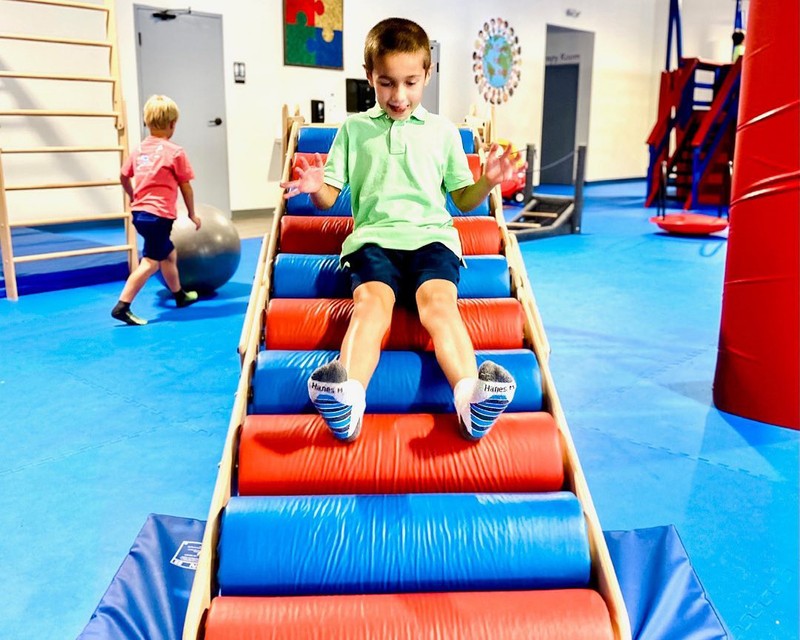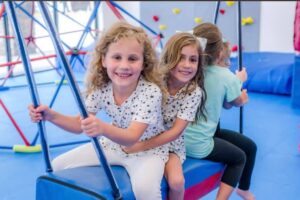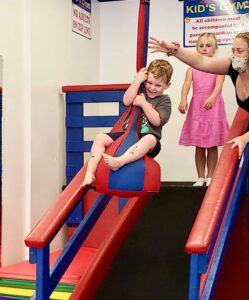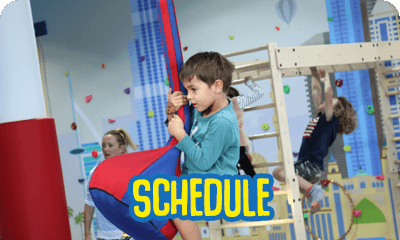Welcome to We Rock the Spectrum in Tarzana, CA!
Click below for a full list of our other locations
around the world

Social Skills Activities that Teach Kids Self-Regulation
July 20,2021
Social skills activities are important for children of all abilities. With this in mind, We Rock the Spectrum’s Social Skills Blog Series aims to provide insight into activities and practical tips that help instill social skills in children. In this article, we focus on the importance of self-regulation skills in children and introduce five fun and educational activities that can enhance their self-regulation skill set.
Does your child find it hard to interact with others, learn new behaviors, move their bodies in an abnormal manner, or show emotional outbursts when disappointed? If this is the case, your child could be suffering from autism. (ASD) Autism Spectrum Disorder is adevelopmental condition in most children characterized by difficulty communicating and socializing with others, and trouble adopting new behaviors. According to the Centers for Disease Control and Prevention (CDC), 1 in every 54 children in the US has autism. There are different types of autism, and each has varying symptoms. For this reason, two children with autism may show different signs. For example, one child may show withdrawal from social interactions while another might have more difficulty talking with others about specific topics.

In a world surrounded by communication challenges, socialization, adaptation, and difficulty expressing emotions, children with autism often struggle with self-regulation skills. Nevertheless, autism is not a permanent condition, and parents can regulate its effects by teaching their children various social skills activities to help them practice these skills. As much as children with autism will benefit from this, parents should also include neurotypical children in their efforts to improve their self-management skills to become well-rounded individuals.
The Importance of Self-Regulation
In a world where parents are busy building their careers and enterprises, many kids lack the guidance from someone to help develop self-regulation. This has led to a rise in the number of children affected by stress and emotional outbursts. Every child needs self-regulation for different aspects of their learning, growth, and development for the following reasons:
- Self-regulation helps children control themselves in a school environment. It gives them the skill set to know when to sit, write, and listen without being instructed to do so.
- When in the company of others, children with proper self-regulation skills behave in socially acceptable manners because they are able to control their impulses. This helps them easily make friends by communicating well, sharing toys, and taking turns in games.
- Kids with self-regulation are more likely to become independent. This in turn will give a child the ability to make proper decisions on behavior with less guidance.
- Emotionally, children who can self-regulate themselves, are happier than those who can’t. This is because their brain and body can control their emotions, which allows them to express themselves verbally or by using a device for communication such as an ipad.
As a parent, you can help your kids enhance self-regulation through sensory strategies.. Sensory self-regulation activities for kids work by increasing or calming an individual’s alertness. To help you, we have put together a list of 5 fun activities that teach self-regulation to children of all abilities.
5 Activities That Teach Self-Regulation
Playing games and engaging in fun activities can boost your kid’s self-regulation skills. Most games and self-regulation activities control sensory organs and impulses, increasing a child’s awareness. Here are five games and activities for kids to boost their self-regulation skills.
1. Traffic Lights
Traffic lights is a game played in a group. One child takes the role of traffic police; he/she makes a call while facing a wall and others react according to the traffic light rules. For example, if the child shouts “green,” the other children are supposed to move towards them. If the cop shouts “red,” the other children must stop. The cop turns after every call to see if everyone is obeying. Kids that do contrary to a specific call are sent back to the starting line. The child who makes it to the end first is the winner!
This game is great for developing self-regulation because it enhances the sense of hearing in your child in addition to boosting their alertness.
2. Musical Chairs
Musical chairs is a classic game known around the world. In this game, you arrange chairs for every participating child in a circular way, minus one (e.g. if there are ten children, you should set up nine chairs). Once everything is set up, music is played and the participating children move in a circle and dance. From time to time, stop with music at irregular intervals and allow the children to sit on the chairs. The child who doesn’t manage to get a chair is eliminated. Once that child sits out of the game, remove one chair. This goes on until you have a winner.
The musical chairs game helps your child develop patience, control their emotions, and learn to solve arguments calmly.

3. Simon Says
In the game Simon Says, kids follow the instructions of “Simon” who is played by one of the players. The child who takes the role of “Simon” gives out instructions repeatedly – usually physical actions such as “touch your nose” or “raise your hand.” The only rule of this game is that the instructions must only be followed when prefaced with the phrase, “Simon says.” Those who fail to follow an instruction prefaced by “Simon says” or those who follow the instructions not prefaced by “Simon says” are eliminated.
This game is great for teaching children self-regulation because the child needs to think before every action is taken.
4. Sensory Equipment

Your child can foster self-regulation skills from playing with sensory equipment specifically designed for children of all abilities, provided at each of our gyms. Sensory equipment like our crash pits, bolster swings, hammock swings, and tunnels can help encourage the development of self-regulation skills, tactile exploration, and body control. Exploring different types of sensory equipment allows children to learn, grow, and of course, have a good time! Additionally, by allowing children of all ability levels to play together, they are able to learn a great deal from each other, such as patience, cooperation, and understanding.
5. Play With A Purpose™
The term Play With A Purpose™ is coined by the We Rock the Spectrum franchise. It is exercising and stimulating any of the seven senses through positive physical, emotional, and social development. These seven senses include: sight, smell, taste, hearing, touch, the vestibular system, and proprioception. At We Rock the Spectrum, your child will be able to play in a sensory-safe environment, take enriching classes, and work with other children to foster the development of their self-regulation skills in an inclusive setting.
Key Takeaways
All children can benefit from self-regulation skills to socialize well with others, make proper decisions, tame their emotions, and perform movements accordingly. Children from all walks of life can learn self-regulation skills through different activities that involve the nourishment of their minds and bodies. To help every child tolerate situations and make appropriate decisions, We Rock the Spectrum offers different self-regulation activities for kids through its specialized sensory equipment and its Play with a Purpose™ program.
Interested in learning more about our mission? Get in touch today.

